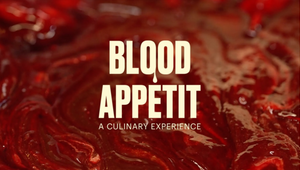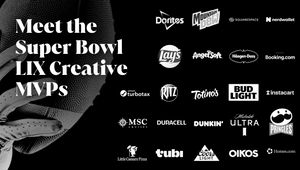
Per Pedersen on Why Brands Need to Embrace Social and Environmental Activism

“All companies, whether they like it or not, are just faced with a huge responsibility for fixing the world. There’s no way around it. The UN can do their thing, politicians can do their thing but if the big corporations are not getting behind it, it’s not going to happen. They have the voice.”
Racism. Sexism. Environmental destruction. For Grey’s creative chairman Per Pedersen, tackling the big issues isn’t about purpose marketing or looking good – it’s about conserving a sustainable market for clients’ businesses to operate within.
“It’s not just a creative, elitist point of view. This is the survival of big brands and their relevancy,” he says. It’s a topic that he’s feeling particularly keen about right now. With one big P&G client, Gillette, Grey has thrust the brand straight into the ‘toxic masculinity’ discussion with 2019’s most talked-about ad, which re-frames the traditional tagline ‘The best a man can get’ to ‘the best a man can be’ in order to maintain the brand’s relevance but also to create a sustainable business environment for the brand. They've since moved the conversation on even further, by broadening the brands definition of masculinity to embrace trans men too.
At a time when long-term brand building and short term tactical advantages (facilitated by data) are talked of as if in conflict, Per likens the idea of a sustainable brand with a sustainable business environment. The long- and short-term ramifications of a brand’s response to the big issues are as practical as they are spiritual.
As an exemplar, Per looks to the beer brand Carlsberg, whose Carlsberg Foundation has existed since 1867 using a proportion of the beer’s profits to investigate and innovate on more sustainable brewing practices. A beer brand depends on the continued existence of beer drinkers to survive. But it also needs to be at the centre of culture, exploring more environmentally friendly means of production to help ensure that survival.
If addressing social and environmental issues offers both short term tactical advantages and long term benefits, Per likens that to the marketing debate between long term brand building, and short term tactics and hyper-targeting.
“I think the ideal company is doing what Fernando Machado [Burger King’s global CMO] is really good at doing – selling burgers at a tactical level, amazing campaigns at a tactical level that are fresh and different and new, and are one promotion after another. They’re fun and you want to be part of it. He sets the standard very high. But you have to mix that with the stuff that Gillette and Nike and The New York Times are doing where you put your product into the bigger picture,” muses Per. “The ideal company does both. It sells stuff in a way that makes me happy to buy your product, and at the same time you say something and do something in your company that I can identify with. Right now it seems to be one or the other. Are you a company that’s living on your brand image or are you a more short term company? I think the ideal is both.”
One company Per feels is striking the balance well is Procter and Gamble – the parent company of his client Gillette. “Here’s the thing I love about Procter and Gamble – they sit in Cincinnati, in a very conservative part of the US, but one thing I always find is that their moral compass is always straight. I’m not saying they don’t make mistakes but as a company they would rather fix their problems with diversity or the gender payment gap than talk about it. That’s how they think. I think a lot of companies are a little too quick on the trigger to do vogue advertising before they get their ship in order.”
Creatively, Grey has been striving to get its ship in order too. When I raise the question of the huge and dramatic restructuring exercises that have been happening with some of WPP’s oldest creative agency brands, like Young & Rubicam and J. Walter Thompson (now part of VMLY&R and Wunderman Thompson respectively), Per laughs that it isn’t happening with Grey. Instead, he says, the past few years have seen a gradual transformation that’s now coming into its own, leveraging Scandi egalitarianism and Latin American flair.
“We came from a more humble brand image, almost non-creative in a way, just a few years back. I think that, in itself, was an energy. You don’t have to defend something, you don’t have to look back to a time when your name was glorious like some of our colleagues. They had a prime golden age at some point, we never had that,” says Per. “When we got together we knew that we were going to be up against 100 years of tradition of how this company has been running since it was created but it’s probably easier because we don’t have to honour a David Ogilvy or Bill Bernbach or Dan Wieden so we could organise in a more democratic way, less focused on a founder, less focused on a certain time and space. To this day it’s an advantage for us, as one of the networks.”
Internally, explains Per, the focus is on ‘solvertising’ - that is, solving clients’ creative problems rather than thinking advertising-first. One such example is Famous Grey’s recent decision to support Volvo’s electric vehicle’s environmental credentials by turning the company into a clean energy supplier. ‘Volts by Volvo’ was created to cut through the clutter at the Brussels motor show, when many auto brands are talking about electric and environmentally friendly alternative models. It also bolsters the environmental credentials of the car with a relatively straightforward solution - partnering with a green energy supplier - whilst also shifting the brand beyond a product category that's currently rather beleaguered.
That ‘solvertising’ approach has never been more relevant, where social and environmental issues are coming to a head and disrupting all sorts of industries, from fast food (which is faced by the rise of veganism and meat alternatives) to toy manufacturers like Mattel, which have been forced to face up to the old fashioned stereotypes portrayed by their Barbie dolls to find a more empowering alternative.
“If you are an alcohol company you have to understand that alcohol and domestic violence are connected. Can you ignore that? You have to realise that most young people don’t want to be pressured into drinking by their group, so you have to solve that. You have to make it cool not to drink, even if you sell alcohol,” Per posits as an example.
“Companies didn’t have to worry about that before. Now it’s all they have to worry about. The Gillette campaign has become a symbol of 2019. Of course The New York Times will do it. Of course Nike will do it. But this is the year where ‘the Gillettes’ are starting to. And that’s the turning point because next year it’s the Coca-Colas and McDonald’s that are going to face this. They are also taking note. They know.”
And so, for Per, addressing these broader issues are long term brand imperatives, not just from an ‘authentic marketing’ viewpoint but from a market preservation viewpoint. And that’s why he also has a refreshing take on the more pro-bono or charitable ‘for good’ work that agencies do. One such example is Grey London's UN People's Seat project, which gave ordinary people the chance to share their views on the climate crisis with decision makers and reached 1.3 billion people.
“I do think non-profit stuff, pro-bono stuff has a huge impact and should continue to have a big impact,” he says. “I would not stop doing that. This is the work we do because we think it is important.”
Whilst some sniffily refer to such projects as awards bait, Per believes that the pro-bono work done by agencies has filtered through to clients, showing them the effectiveness of taking a stand and building a creative foundation that is serving creative agencies well in an age of disrupting and shifting social norms, attitudes and challenges.















